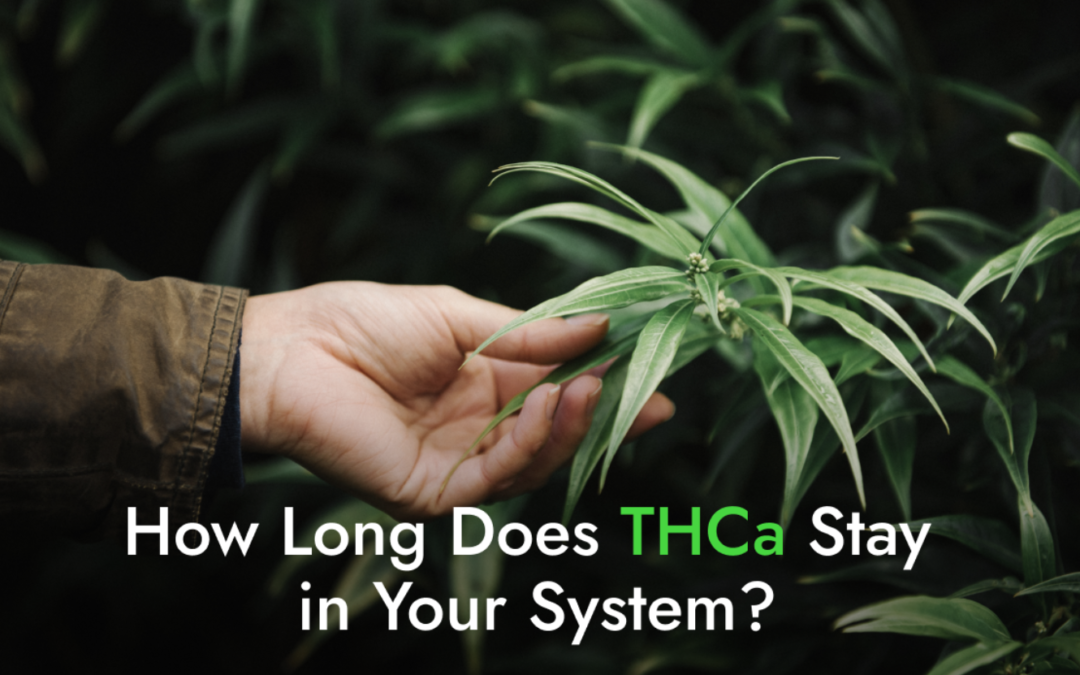If you’ve recently consumed cannabis or are considering using it, you may be wondering about the effects of THCA (Tetrahydrocannabinolic Acid) and how long it stays in your system. Whether you’re preparing for a urine test or simply curious, understanding how long THCA remains in your body can be important for various reasons, from passing drug tests to understanding its physiological impact.
In this article, we’ll break down THCA and its effects on the body, as well as answer common questions like “How long does THCA stay in your system?” and provide some insights from Reddit discussions and other reliable sources.
What is THCA?
THCA is the non-psychoactive precursor to THC, the compound responsible for the “high” associated with cannabis. When cannabis is consumed raw or unheated, it contains THCA. However, when it’s heated (such as when smoking, vaping, or cooking), THCA undergoes a chemical process called decarboxylation, converting it into THC, which then produces its psychoactive effects.
THCA itself does not produce a high. Instead, it has been studied for its potential medicinal properties, including anti-inflammatory and neuroprotective effects. THCA is typically found in fresh cannabis flowers, and its presence can be high in raw cannabis consumption, such as in juicing or tinctures.
How Long Does THCA Stay in Your System?
The length of time THCA stays in your system can vary depending on several factors, including your metabolism, body fat percentage, how often you consume cannabis, and the method of consumption. However, most of the information available focuses on THC, as it’s the metabolite that typically shows up in drug tests, so it’s important to understand how both are related.
Key Factors Influencing THCA’s Duration in Your System:
- Frequency of Use: If you are a regular cannabis user, THCA may stay in your system longer because your body has accumulated it over time.
- Metabolism: People with faster metabolisms may process and eliminate cannabis-related compounds more quickly than those with slower metabolisms.
- Body Fat: Since THC and its metabolites are stored in fat cells, individuals with higher body fat percentages may retain THCA for a longer period.
- Method of Consumption: If you consume cannabis through raw methods like juicing or eating fresh cannabis, THCA is in its acidic form and not decarboxylated into THC. However, if you smoke or vape, the THCA is converted into THC, which will remain in your system for longer.
Also Read: NAD+ Injections Near Me: Everything You Need to Know About NAD+ Therapy
How Long Does THCA Stay in Your System for a Urine Test?
Urine tests are one of the most common ways that employers or other institutions test for cannabis use. THC metabolites, which are what the body produces after metabolizing THC, are the compounds tested in a urine analysis. These metabolites can be detected for varying lengths of time, but THCA itself is typically not directly tested unless it has been converted into THC through decarboxylation.
If you have consumed cannabis with a high THCA content (and the THCA was converted to THC), the detection window can vary:
- Occasional Users: For someone who uses cannabis infrequently, THC and its metabolites can remain detectable in the urine for up to 3-7 days.
- Regular Users: For regular cannabis users, THC can be detectable for 10-30 days or more in their urine, depending on their usage patterns and body’s ability to metabolize the compound.
Since THCA is not directly detected in a urine test, it’s the THC metabolites that will likely show up. That means THCA stays in your system for as long as THC metabolites do.
How Long Does THCA Stay in Your System on Reddit?
Many users on Reddit and other cannabis forums often share their experiences with the duration of THCA and THC in their systems. Based on the discussions, the general consensus is that if THCA is decarboxylated into THC (as is common with smoking or vaping), the metabolites of THC may stay in your system for:
- Occasional Users: Around 3 to 7 days
- Frequent Users: Up to 30 days or more, depending on the frequency of use and individual metabolism
For those who consume raw cannabis with high THCA content, the consensus is that it’s less likely to show up on a drug test, because THCA has not yet been converted into THC. However, this doesn’t mean THCA is completely out of the picture — it still has a lingering presence, especially if you’re using cannabis regularly.
How Long Does THCA Stay in Your System After Edibles or Juicing?
When you consume cannabis in its raw form or through edibles containing THCA (without heating or decarboxylating the cannabis), the body may metabolize THCA differently. Since THCA is not psychoactive on its own, it will not produce the same effects as THC. However, THCA may still remain in the system for varying periods, although this is less studied than THC and its metabolites.
- Raw Cannabis Consumption: If you’re consuming raw cannabis, whether through juicing or other methods, THCA will remain in your system until your body can metabolize it, which can take anywhere from a few days to several weeks, depending on various factors.
- THCA Edibles: If you consume THCA-rich edibles, it’s worth noting that the THCA still needs to undergo decarboxylation for any psychoactive effects. If the THCA is heated in the process (such as in making cannabis-infused oils or edibles), then the THC metabolites will be present in your system for the same duration as smoking or vaping cannabis.
Tips for Reducing the Time THCA Stays in Your System
If you are concerned about how long THCA or THC will remain in your system, there are a few things you can do to help speed up the process:
- Exercise: Since THC and its metabolites are stored in fat cells, increasing your physical activity can help your body burn fat and speed up the elimination of cannabis metabolites.
- Hydration: Drinking plenty of water can help flush out the metabolites from your system, but be careful not to overhydrate right before a urine test as it might dilute your sample.
- Diet: Eating healthy foods, including those that support liver function, may help your body metabolize and eliminate cannabis compounds more quickly.
- Time: Ultimately, the best way to eliminate THCA and its metabolites is time. The longer you wait, the more likely your body will process and excrete it naturally.
Conclusion
THCA, the precursor to THC, plays an important role in cannabis consumption, but it’s not typically tested for in drug tests unless it has been decarboxylated into THC. How long THCA stays in your system can vary depending on your method of consumption, frequency of use, metabolism, and body fat percentage.
If you consume cannabis raw or through edibles with high THCA content, it will likely remain in your system longer in the form of THC metabolites. For urine tests, THCA itself is not directly detectable, but THC metabolites, which can stay in your system from 3 to 30 days, are what’s typically measured.
Understanding how long THCA stays in your system can help you prepare for any drug tests or simply give you peace of mind about your cannabis use. If you’re worried about passing a test, remember to account for the effects of THC metabolites and consider lifestyle changes to help your body process them more quickly.

